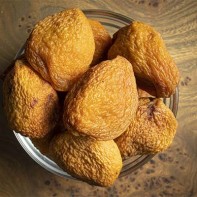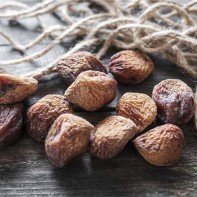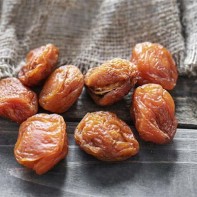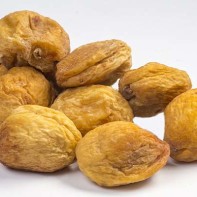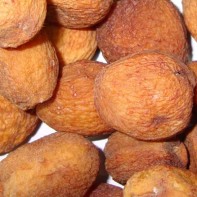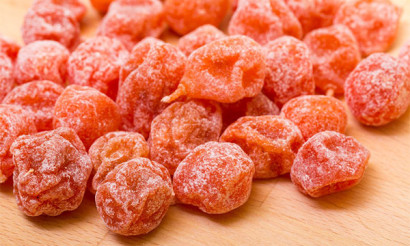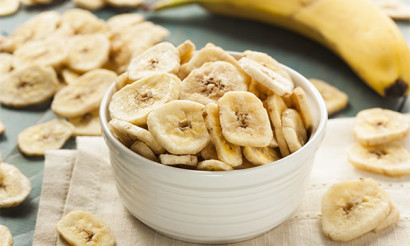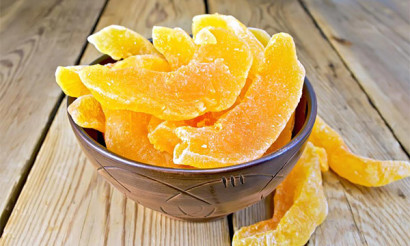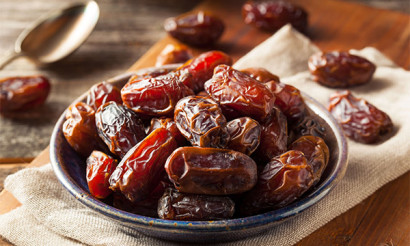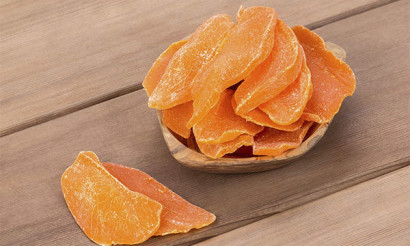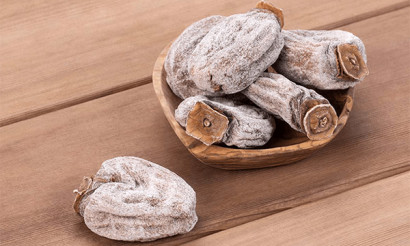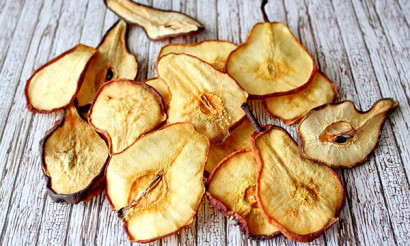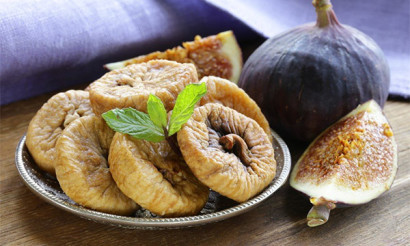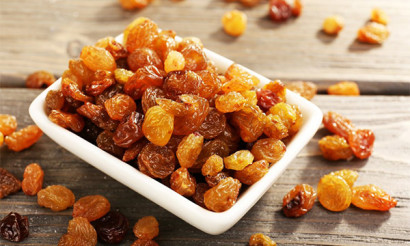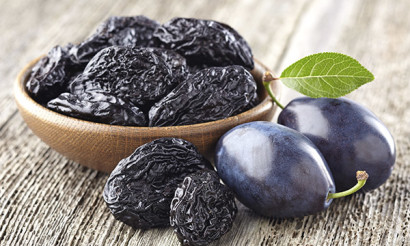Frugula: what is the fruit, its useful properties and contraindications
Frug is an unassuming, but very useful dried fruit less known to a wide range of consumers than the bright apricot. The dried fruit, which contains beauty vitamins, a complex of minerals, is not only included in the culinary recipes of home cooking. It is used in folk medicine, cosmetology.
- Arugula: what it is, how it looks and what it is made of
- How it looks
- What is it made of
- Arugula and apricots: what is the difference and what is more useful?
- What is the difference
- Which is healthier
- Composition and calories
- What are the benefits of apricots for the human body
- General benefits
- For Women
- For men
- For Children
- Pregnancy
- For breastfeeding
- Weight loss
- Corns of dried apricots: is it possible to eat them and why are they useful?
- Can I use them if I have a disease?
- Diabetes mellitus
- Pancreatitis.
- Gastritis
- For constipation
- Coriander in folk medicine
- Cosmetic applications
- Moisturizing Mask
- Nourishing mask
- Scrub of the shells
- Cooking
- Harm and contraindications
- How to choose and store
- Where to buy and how much costs
- How to eat apricots
- How much can be eaten per day.
- Can I eat at night?
- How to make apricots at home
- What can be made from barley: Recipes
- Jam
- Compote
- Pilaf
- Can we give it to animals?
What is, how does it look and what is it made of?
apricots, apricots, apricots, apricots, apricots, apricots and apricots are all derivatives of apricots that differ in the way they are dried. It is believed that apricots retain more nutrients than others.
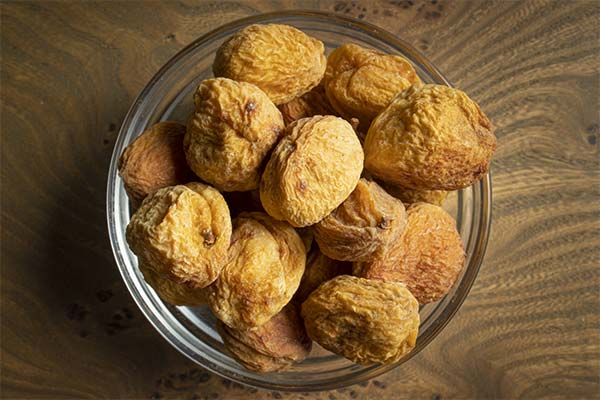
What it looks like
The dried fruit is delicious and easy to store, but its appearance is unpresentable and unsightly. The fruit is a whole fruit with a bone that has dried on a tree.
Under the influence of the scorching sun and winds, the fruit shrivels, loses moisture, and changes color to gray-brown with brown flecks.
What is it made of?
The natural product of apricots is dried apricots that have been left to dry on the branches of a fruit tree after maturing, dried in the sun or in the shade.
Apricots and apricots: what is the difference and what is more useful?
The difference between apricots and apricots is in the method of drying, in the appearance, the concentration of useful substances.
What is the difference
A apricot is prepared from cut ripe fruits without a seed, baking in special ovens or dryers. Stoned apricots are dried naturally - on tree branches, in the shade, in the sun.
Orange sun-dried apricots that have retained their fleshiness look attractive and are in greater demand than gray-brown shriveled apricots. Producers preserve the bright color of apricots by coating the skin with sulfuric acid and treating it with sulfuric anhydrite.
In addition to its external appeal, toxic sulfur dioxide provides protection from fungi, harmful bacteria, and parasitic insects.
What's healthier
If you choose dried apricots in terms of health benefits, preference should be given to natural apricots. It retains more useful substances, as the peoples of Central Asia, who use the product in the dishes of the national cuisine, know exactly. Europeans often choose the beautiful fleshy apricots, without going into the details of production.
Composition and calories
Apricots are rich in fiber, natural sugars, beta carotene, vitamins A, E, PP, group B, potassium, magnesium, iron. Dried apricots contain malic, citric, tartaric and salicylic acids that are necessary for metabolic energy conversion.
Contents of 100 g of apricots in vitamins, minerals:
Vitamins:
- Beta Carotene - 3.5 mg.
- A - 0.6 mg.
- Tocopherol - 5.5 mg.
- Nicotinic acid - 3.8 mg.
- Riboflavin - 0.2 mg.
- Thiamine - 0.1 mg.
- C - 4 mg.
Micronutrients and macronutrients:
- Iron - 3.2 mg.
- Potassium - 1781 mg.
- Magnesium - 109 mg.
- Phosphorus - 152 mg.
- Calcium - 166 mg.
- Sodium - 17 mg.
GI of 100 grams of the product - 9, 2, 90 g, respectively. The caloric value is 242 kcal.
What are the benefits of apricots for the human body?
General benefits
Antioxidants in dried apricots inhibit free-radical oxidation, protect against internal inflammation, ultraviolet light and polluted air. Vitamins A, E, C accelerate the regeneration of damaged cell membranes, enhance immune status, optimize metabolism, slow down aging.
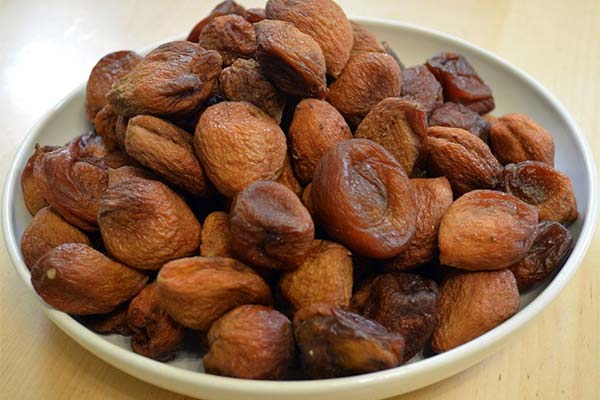
Other beneficial effects of apricot:
- Neutralizes toxins.
- Participates in the synthesis of collagen, elastin, muscle contraction.
- Improves intestinal flora, has an analgesic effect.
- Inhibits the growth of cancer cells.
- Regulates blood cholesterol levels, prevents the formation of cholesterol plaques, vasoconstriction.
- Supports myocardial function, normalizes blood pressure, reduces the risk of vascular accidents.
- Detoxifies from the body of heavy metal salts, radionuclides.
- Increases the perception of light, prevents violations of crepuscular adaptation, visual acuity, the development of cataracts.
- Improves nerve impulse conduction, prevents neurological disorders, reproductive gland dysfunction.
- Mineralizes spine, pelvic bones, limbs.
- Regulates acid-base, water, electrolyte balance, energy metabolism.
- Increases the body's resistance to colds.
- Promotes the building of muscle mass.
- It has diuretic properties.
- Prevents the development of depression, chronic fatigue.
Helpful for weight loss, avitaminosis. Dried fruit copes with migraines, stimulates the secretion of gastric juices, reduces swelling.
For women
- Dried apricots are a detox for the female body. Prune speeds up digestion, excretion of decomposition products, toxic substances.
- Beauty vitamins, citric acid, calcium in the product support the health and youthfulness of the skin, teeth, nails.
- With regular use of dried fruit maintains a normal pH of the skin, exfoliates the stratum corneum of the epidermis, wrinkles are smoothed. Covers become supple, smooth, elastic. Nutrition of hair follicles is normalized. Hair stops falling out, becomes thicker, shinier, more viable.
- Stonberry supports the functions of the reproductive organs, increases fertility, fights neuroses. With PMS and menopause stabilizes psycho-emotional state, reduces the intensity of menstrual pain.
For men
Dried apricots support heart function, reduce the risk of strokes, heart attacks. Fruits increase stress resistance, endurance, regenerate muscles after physical work, sports.
Potassium, magnesium, antioxidants in the composition of apricots have beneficial effects on men's health:
- Improve blood circulation in the pelvis, genitals.
- Normalize the work of the prostate gland, prevent inflammation.
- Support erectile function.
- Participate in the conduction of nerve impulses, increase the sensitivity of nerve endings.
In addition, apricots prevent vascular damage in men with type 2 diabetes, high blood pressure.
For children
Pediatricians advise to include apricots in children's diet to prevent colds, maintain visual acuity, which is important at high loads at school.
Apricots improve digestion, eliminates constipation. Phosphorus, magnesium, B vitamins prevent neuroses, smooth the effects of stress, improve brain function. In children with iron deficiency anemia increases hemoglobin levels.
Dried apricots in the form of compote give children from one year old, with a tendency to allergies from three years.
When pregnant
The benefits of apricots for pregnant women:
- saturation of the body with vitamins, minerals:
- improvement of digestion, intestinal peristalsis, elimination of constipation;
- Increasing hemoglobin levels;
- formation of the child's skeleton, nervous and respiratory systems;
- reducing the risk of fetal abnormalities, miscarriage or premature birth;
- normalization of blood pressure;
- prevention of calf cramps.
The product reduces the intensity of toxicity, normalizes sleep, hormonal background, relieves swelling.
When breast-feeding.
Fat-soluble vitamin A, contained in 100 grams of dried apricots, covers the body's need for it by 65%. Retinol regulates the production of breast milk, so pediatricians advise nursing mothers to include the product in their diet.
Corns saturate the body with energy, supply vitamins and calcium necessary for lactation, stabilize the psycho-emotional state, and prevent postpartum depression.
When losing weight.
The high caloric value of 100 grams of apricots does not affect weight loss, because in order to get enough to eat 3-4 fruits, whose caloric value is three times less.
The benefits of dried apricots for weight loss:
- Helps with overeating;
- Reduces cravings for sweet confectionery;
- speeds up metabolic reactions, preventing the deposition of fat;
- removes "bad" cholesterol;
- Improves digestion, improves intestinal flora;
- Fights nervousness, bad moods;
- Energizes, protects the heart from overload during fitness activities;
- Helps cleanse the intestines, remove excess fluid and toxins;
- Supplies nutrients to the body, weakened by dieting.
To speed up digestion and metabolism, nutritionists recommend 2-3 times a week to drink on an empty stomach an infusion or compote of apricots, cook porridges with fruits for breakfast, make light desserts. It is desirable to eat with apricots before dinner.
The greatest benefit in shedding excessive pounds is a combination of dried fruits with low-fat poultry or lean lactic acid drinks.
Prickly Pear Seeds: Can I Eat Them and What Are They Good for?
Apricot kernels contain up to 60% of oil with linolenic and oleic fatty acids.
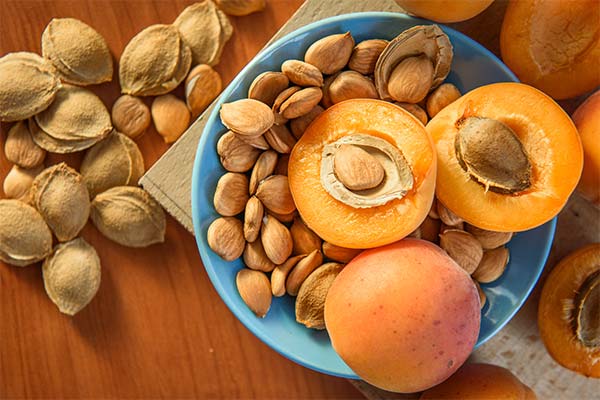
In addition, the product contains:
- Retinol, nicotinic and ascorbic acids;
- vitamins F, B17;
- proteins;
- phospholipids;
- iron, magnesium, potassium, fluorine;
- organic acids;
- hydrocyanic acid.
Because of the last component, many people are afraid to eat apricot kernels, considering them toxic. A portion weighing more than 20 grams causes harm to health. Neutralize the harm of poison by steaming or burning the product in the oven. During thermal treatment, the hydrocyanic acid decays, and the kernels become harmless.
Apricot kernels cleanse the body of worms, protect the heart, blood vessels, respiratory organs, and prevent cancer. In Chinese medicine, the kernels are used to treat joints and restore muscle tone.
In cosmetology, apricot kernel oil is used to regenerate damaged skin, to stop inflammation. Creams, serums with oil are used to treat the skin of infants against diaper rash. Cosmetic products with apricot extract are used for cellulite, for massage, smoothing ageing skin.
Burnt kernel shells are used for the production of absorbents, mascara.
Can I use them if I have a disease?
The effect of apricots on the body for different diseases is ambiguous. The product is useful for diabetes, uncomplicated obesity, constipation, hemorrhoids, liver disease, gout.
Exclude apricots from the menu in acute gastritis, cholecystitis, pancreatitis, acute peptic ulcer disease.
With diabetes.
In moderate amounts (4-5 pieces per day) apricots are useful for patients with diabetes. Dried apricots:
- Reduces the risk of heart attacks, strokes;
- It improves digestion;
- speeds up metabolic reactions;
- lowers blood pressure;
- normalizes bowel function;
- Prevents the development of anemia, hypoglycemia;
- activates the immune response;
- promotes cell regeneration, heals wounds;
- supports the health of the kidneys, organs of vision.
Endocrinologists recommend eating apricots in the morning. To lower the glycemic index, dried apricots are eaten with carrots or cottage cheese. These foods slow down the absorption of glucose.
Important: The glycemic index of apricots is 30-35 units.
In pancreatitis
Gastroenterologists allow gastroenterologists to include apricot in the diet in small quantities only in periods of stable remission. In acute pancreatitis, you can consume strained infusions of fruit or compote without added sugar after fasting. The pulp of dried fruit rich in fiber is excluded from the diet.
In the chronic form of pancreatic inflammation after soaking dried apricots added to porridges, sauces, meat, casseroles in an amount not exceeding 80 g.
For gastritis.
The maximum allowable amount of apricots in the period of remission of gastritis with reduced acidity is 5 pieces. In the hyperacidic form of the disease, only compotes, decoctions are allowed.
With an exacerbation of the disease, the product with organic acids in its composition is prohibited for use in any form of the disease. Uruk, eaten on an empty stomach, itself causes an aggravation of inflammation of the mucosa of the stomach.
In case of constipation.
One hundred grams of apricots covers the body's need for fiber by 88%. It is dietary fiber that shortens the time of food passage through the large intestine, minimizing the accumulation of toxins, carcinogens.
Fiber in dried apricots improves bile flow, bowel motility, has a mild laxative effect, prevents stool disorders.
Prickles in folk medicine
The product is included in recipes for folk medicine to strengthen the body, improve intestinal peristalsis, lose weight, improve blood composition:
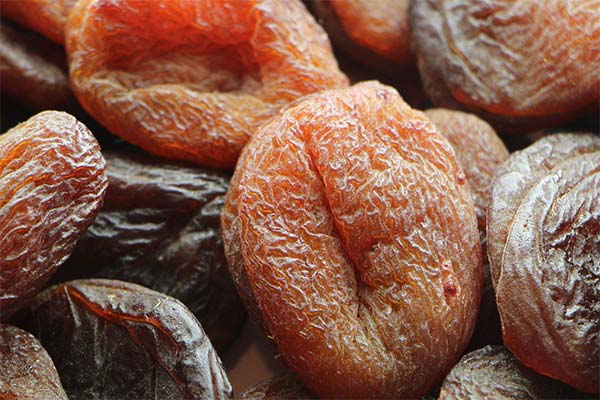
- Pour into a thermos 100 g of apricots, 20 g of hawthorn and rose hips each. Pour 0.5 liters of boiling water, leave to infuse for 6 hours. Drink the drink half an hour before breakfast, lunch and dinner at 150 ml. Apricot infusion increases the tone of blood vessels, hemoglobin levels, thinning the blood.
- To speed up the process of losing weight, arrange yourself a day of unloading on apricots. Pour 0.3 kg of seedless apricots in a glass of boiling water. In 10 minutes beat the mass with an immersion blender. Add 0,5 l of apricot juice. Divide the resulting drink into four portions, drink every 3 hours. To cleanse the intestines more effectively, drink at least two liters of clean water a day.
- Make an herbal collection of equal parts of apricots, prunes, black raisins, lemon. Mix, grind with a blender. Fill with fresh honey. Take a tablespoon before breakfast and dinner. The remedy strengthens the heart muscle, nourishes the body with vitamins, minerals, useful for chronic fatigue, stress, neurosis.
- To get rid of constipation, prepare an infusion in a thermos. Pour a glass of washed acorns in a liter of water at 80 degrees. After 12-15 hours, remove the fruit, drink the drink like tea.
People taking laxatives, diuretics, it is recommended to include dried apricots in the diet to replenish potassium reserves, and taking antibiotics for faster absorption.
Cosmetic applications
In home cosmetology, apricots are included in recipes for masks, scrubs to eliminate dryness, peeling, cleansing the skin, smoothing wrinkles:
Moisturizing mask
Pour 50 g of seedless apricots with the same volume of boiling water. After steaming, add 15 g of sour cream, cottage cheese, a drop of rose oil and a teaspoon of honey to the apricots. Mix the mixture until homogeneous. Spread the mixture on your face. After a third of an hour, wash your face with warm water.
Nourishing Mask
Mix 30 grams of oatmeal with finely ground apricots. Add 2 tbsp. of boiling water. After 15 minutes add 2 drops of jojoba oil and 1 tsp. honey. Apply the mask to the face, keep for a quarter of an hour. The vitamin composition not only nourishes, but also cleanses pores, preventing acne.
Scrub from the shells of the kernels
Extract the kernels from 3-4 apricot kernels. Grind the shells into a powder. Add to your liquid cleanser. Apply with gentle massaging movements, trying not to stretch the skin of the face.
The use of apricots in cosmetology is due to the inclusion of beauty vitamins.
Cooking use
In Central Asia, they cook pilaf with apricots, bake bread, cakes, make casseroles and desserts. They stew meat with it to give a spicy sourness, and use it as a filling for pies. Dried apricots are used to make compotes, marmalade, and healing tinctures.
The dried fruit is combined with ginger, carrots, dairy products, nuts, rice and oatmeal.
Harm and contraindications
Apricots are contraindicated in allergies, exacerbations of pancreatitis, gastritis, peptic ulcer disease, intestinal incontinence and an excess of potassium in the blood. Because of the property of apricots to lower blood pressure, the fruit should be abandoned in hypotension and asthma.
The harm to the body is caused by inordinate use of fruit, leading to digestive disorders, flatulence, bloating and diarrhea. Exceeding the recommended dosage of a high-calorie product by nutritionists threatens to gain excessive weight.
How to choose and store
To distinguish the product dried on the tree, from the dried fruit, prepared in industrial dryers with the use of chemicals, use the advice of experts:
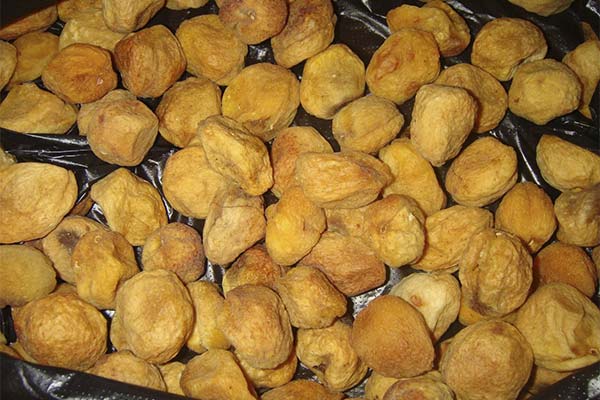
- Quality fruit is unsightly in appearance, covered with a wrinkled gray-brown skin with no signs of mold or rot. The shiny, orange surface indicates that the fruit has been treated with sulfuric acid.
- Properly dried apricots are not sticky to the hands and do not release juice when pressed. Their flesh is firm and dense to the touch.
- Sun-dried apricots have an unobtrusive apricot smell. Fruits from industrial ovens and dryers have a fruity flavor with hints of chemistry and smoking.
- The taste of quality dried fruit is sweet and sour. The sugary flavor is a sign that the fruit is steeped in sugar syrup.
The consumer properties of apricots on the shelf of the kitchen cabinet or in a dark pantry are preserved for no more than 30 days. Dried fruits are stored for up to six months in the refrigerator and up to a year and a half in the freezer.
Suitable packaging for storage - hermetically sealed plastic food containers, glass jars. In canvas bags, apricots dry out and are attacked by parasitic insects. In cellophane bags, the product "suffocates" and quickly goes mouldy.
Where to buy and how much does it cost?
You can buy apricots in supermarkets, bazaars, fairs at dried fruit vendors and online sites. The price of the product is 170-380 p. depending on the variety of apricots, the region.
How to eat dried apricots
Dried fruits are boiled and kept for 8 hours in a thermos. Pleasant to the taste, sweet infusion with steamed apricots is served for breakfast, as a vitamin drink, energizing for the day.
How much you can eat a day
The maximum allowable amount of apricots is 100 g per day or 8-12 fruits. If you eat more apricots, allergic reactions and digestive disorders are possible.
Can I eat at night?
If you stick to the diet, it is better to eat sweet fruits in the first half of the day. In small doses, dried apricots can be eaten one hour before bedtime.
Folk medicine recommends consuming 5 pieces of apricots or apricots, one fruit of figs and prunes at night for a month and a half to restore the intervertebral discs.
How to make apricots at home
To get a quality product, you need fully mature apricots without spots, damage.
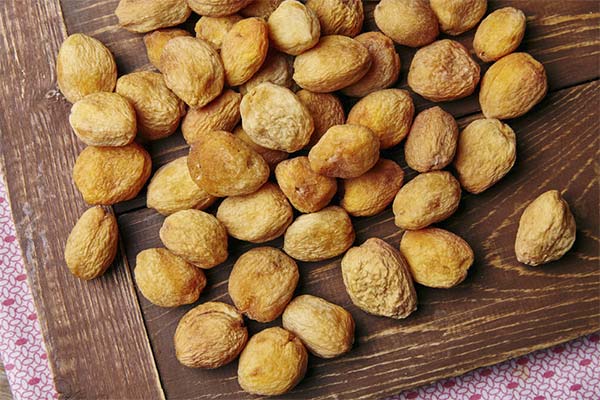
Recommendations for preparation:
- Wash the fruit, lay it out on a towel. Leave until the moisture has completely evaporated.
- Preheat oven to 60 degrees.
- Place the apricots on a baking tray. Put them in the oven.
- Dry with the door open for an average of 7 hours, turning occasionally.
- Cool the apricots to room temperature, put them away for storage.
In private homes, in summer houses, apricots are dried outdoors. Every day for a week, place the fruit in direct sunlight or under a canopy, turning them every 3-4 hours. At night they are taken inside the house.
What can be cooked from the apricots: Recipes
They make jam, jam, jam, and marmalade with apricots. Boil a compote for the winter, sweet soups. The fruit is added to porridges, pilaf.
Jam
To cook a delicious jam with a bright flavor of apricots, you will need 1 kg of dried apricots, 900 g of sugar, two-thirds of a cup of water.
How to prepare:
- Wash the dried fruits, dry them. Cut it in half and remove the seeds.
- Boil over low heat syrup of water, sugar for 10 minutes.
- Pour the apricots into a bowl with the sugar solution. After boiling, remove the container from the stove. Cool to room temperature.
- Bring the fruit mass to a boil a second time.
- After cooling, put the basin with the contents on the fire a third time, cook over low heat for 15 minutes.
- Pour the ready jam into sterilized jars and close with metal lids. Invert it and wrap it with a woolen blanket.
When jam cools completely, take it to a cool place.
Compote
To make a compote of apricots for the winter, prepare:
- 1 kg of dried apricots;
- 2 liters of water;
- 800 grams of granulated sugar;
- 50 ml of lemon juice.
Preparation steps:
- Wash the fruits. If they are too dry, soak them for a while.
- Put a pot of water on the stove.
- After boiling, pour sugar, apricots, citric acid into the container.
- Remove the container from the fire after the sugar has completely dissolved.
- After 10 minutes, remove the fruit from the pan, syrup boil again.
- Sterilize one liter jars in the oven.
- Spread the fruit in them. If desired, you can add a couple of lemon slices.
- Fill with boiling syrup to the brim of the neck, cover with metal lids, roll up.
Pilaf
To make pilaf with beef and apricots need a set of products:
- 250 g of meat;
- 0.5 kg of long-grain rice;
- 150 grams of carrots;
- one onion;
- 0.5 tbsp. vegetable oil;
- salt, spices for pilaf.
Method of preparation:
- Soak the rice for a few hours in a bowl. Rinse, changing the water seven times.
- Cut the onion into half rings and the carrot into slices. Peel off foil on beef, cut into small cubes.
- Heat oil in a cauldron. Fry the meat. Add onion, carrot. Cook for 10 more minutes.
- Fill zirvak with water, stew meat with vegetables for half an hour.
- Salt, add a set of spices, mix.
- Put seedless apricots in cauldron, put rice on top.
- Pour water 1.5 cm over the grains. Turn down the heat.
- When the liquid is absorbed, turn off the stove. Leave the cauldron with pilaf on a hot stove to bake until ready.
Serve with the pilaf a salad of radishes, cabbage or tomatoes with onions.
Can I give animals
Dried apricots can be given to cats and dogs occasionally as the fruit has a strong laxative effect, especially on puppies and kittens.
Soak apricots in warm water, give them one small piece and watch for reaction. If there are no adverse reactions, offer more.
Dried apricots improve well-being, elevate mood and have other beneficial effects on the body, if they are eaten in moderation, taking into account the contraindications.
«Important: All information on this site is provided for informational purposes only purposes. Consult with a health care professional before using any recommendations. specialist before applying any recommendations. Neither the editors nor the authors shall be liable for any possible harm caused by materials."

